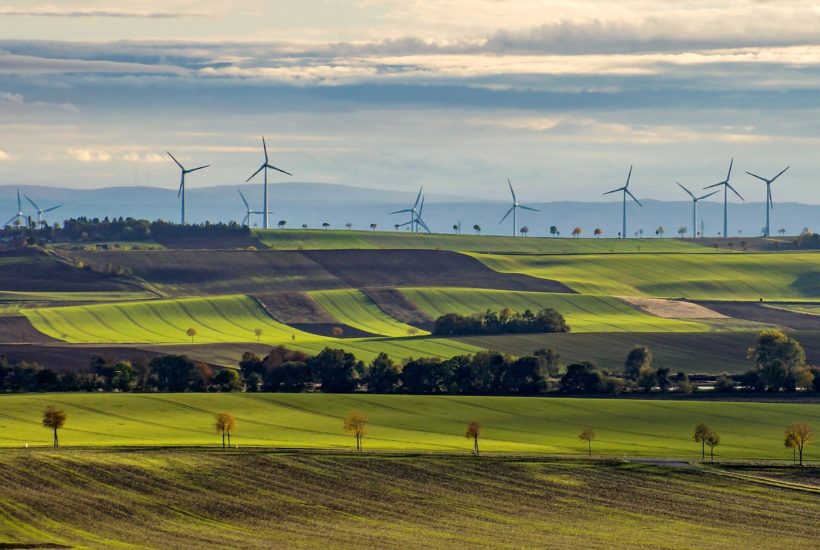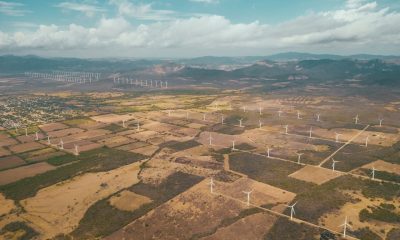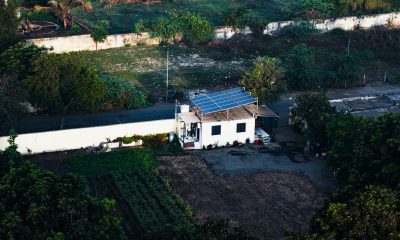Featured
Renewable Energy as a Path to Economic Recovery
Renewable energy can offer governments a “no-regrets” path to post-Covid economic recovery. According to a study by EY Parthenon, there are 13,000 currently shovel-ready renewable energy projects identified in 47 economies in the areas of offshore wind, onshore wind, solar and hydro that can deliver economic recovery in three years, with reduced greenhouse gas emissions, jobs and economic growth.

Renewable energy can offer governments a “no-regrets” path to post-Covid economic recovery. The announcement was made by experts from EY Parthenon’s energy team, through the publication of the results of research commissioned by the European Climate Foundation (ECF).
According to the study, which involved analysis of a pipeline of 13,000 ready-to-go offshore wind, onshore wind, solar and hydro projects in 47 economies, renewable energy can deliver greenhouse gas emission reductions, jobs, and economic growth in the short term all at once. “Mapping the potential impact of identified projects in 47 economies that together account for about 88% of global GDP is not a prediction of renewable energy deployment, but it describes what could be achieved if concerted action is taken now. International cooperation and collaboration between the private and public sectors can together trigger a global green recovery. It can also regenerate depressed communities affected by legacy industries in developed economies and help developing economies build critical infrastructure and clean energy production for the future,” the study authors said.
Read more on the subject and find the latest financial news in the world with the Born2Invest mobile app.
Generating 1 terawatt of electricity in three years
Deploying the visible project pipeline over a three-year period would, first, more than double the current rate of global renewable energy deployment, providing 1 terawatt (TW) of renewable generation capacity. In some countries, the visible project pipeline alone is sufficient to meet the existing Nationally Determined Contribution (NDC) targets under the Paris Agreement. For the 47 countries included in the study, the visible project pipeline will reach 22% of the UNFCCC NDC (the Paris Agreement) emission reduction target for 2030.
Beyond direct emissions reductions, decarbonization of the power sector through renewables lays the foundation for emissions reductions in the rest of the economy through electrification. Deployment of promising projects would reduce greenhouse gas emissions by 2.5 giga tons of CO 2 equivalent (GtCO2e) per year, helping to close 9% of the global 2030 emissions reduction target set by the Intergovernmental Panel on Climate Change (IPCC) to limit global warming below 1.5°C. This highlights both the opportunity presented by the visible project pipeline and the scale of additional action required to meet the IPCC global targets.
Creating 10 million jobs in three years
Second, the visible project pipeline could also create up to 10 million jobs, counting both local project jobs and supply chain jobs. Within countries, renewable energy can be particularly effective as a tool for creating employment opportunities outside of urban economic centers, especially when deliberate efforts are made to strengthen local supply chains. One example of the impact this can have is in the Humber region of the UK. Established as an offshore wind energy hub to reverse a long period of economic decline, the region is now home to six operational offshore wind farms (including the world’s largest – Hornsea One) and is central to delivering the UK government’s commitment of 40 GW of offshore energy capacity by 2030.
The deployment has resulted in a 60% drop in local job seekers. It is sometimes claimed that green energy jobs are focused on highly skilled Science, Technology, Engineering, and Mathematics (STEM) graduates, but this is not borne out by analysis. In fact, lower-skilled jobs are being created by construction, installation, and manufacturing, while there are new opportunities for skilled jobs, such as in engineering and project management. Also on the employment front, the study finds that investment in renewable energy does more than creating jobs: it creates employment opportunities in certain regions of the world where the need is greatest and where alternatives are lacking.
Generating the equivalent of 85% of the world’s lost GDP by 2020
Finally, in terms of growth, the study reveals that the pipeline of shovel-ready projects could provide an injection of more than US$1.9 trillion into the global economy over a three-year period, representing some 85% of lost GDP in 2020. This means, in other words, that it can enable a green recovery to begin immediately, and dependence on public funds would be minimal. Indeed, EY Parthenon experts explain that “recent examples of successful renewable energy policies show that with the right policy frameworks in place, between 90 and 99% of the investment required for accelerated renewable energy deployment can be provided by the private sector.”
__
(Featured image by tomasz66 via Pixabay)
DISCLAIMER: This article was written by a third party contributor and does not reflect the opinion of Born2Invest, its management, staff or its associates. Please review our disclaimer for more information.
This article may include forward-looking statements. These forward-looking statements generally are identified by the words “believe,” “project,” “estimate,” “become,” “plan,” “will,” and similar expressions. These forward-looking statements involve known and unknown risks as well as uncertainties, including those discussed in the following cautionary statements and elsewhere in this article and on this site. Although the Company may believe that its expectations are based on reasonable assumptions, the actual results that the Company may achieve may differ materially from any forward-looking statements, which reflect the opinions of the management of the Company only as of the date hereof. Additionally, please make sure to read these important disclosures.
First published in LesEco.ma, a third-party contributor translated and adapted the article from the original. In case of discrepancy, the original will prevail.
Although we made reasonable efforts to provide accurate translations, some parts may be incorrect. Born2Invest assumes no responsibility for errors, omissions or ambiguities in the translations provided on this website. Any person or entity relying on translated content does so at their own risk. Born2Invest is not responsible for losses caused by such reliance on the accuracy or reliability of translated information. If you wish to report an error or inaccuracy in the translation, we encourage you to contact us.

-

 Cannabis2 weeks ago
Cannabis2 weeks agoKONOPEX Expo 2026: Celebrating Europe’s New Era of Legal Cannabis
-

 Biotech1 day ago
Biotech1 day agoVolatile Outlook for Enlivex Therapeutics as Investors Await Clinical Catalysts
-

 Impact Investing1 week ago
Impact Investing1 week agoInter IKEA Launches Electric Truck Fleet to Decarbonize Heavy-Duty Logistics in Italy
-

 Markets3 days ago
Markets3 days agoCotton Market Weakens Amid Demand Concerns and Bearish Trends
























